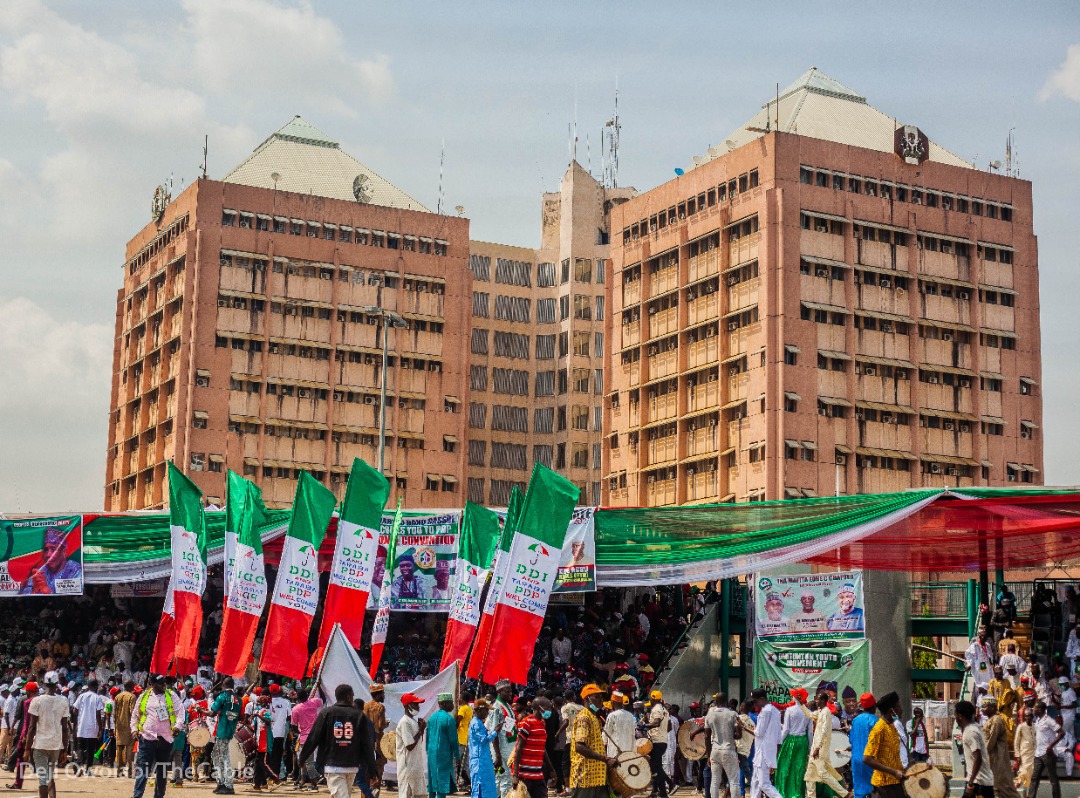In every human society, there has always been a natural stratification of people into different, uneven classes. There are the rich and the poor. We have the haves and have-nots. There are the strong and the weak. Some are the aristocrats and others are the proletariat. And we have the elite and the commoners, the royals and their subjects, the rulers and the ruled, and the leaders and their followers. All these human classifications are products of both natural selections and social constructs. Even though all human beings may be biologically born equal, all do not live or end up equal. This is also reflected in George Orwell’s allegorical novella, Animal Farm, which posits that all animals are equal, but some are more equal than others.
It is from the implications of the foregoing theory that this piece disputes the controversial proposition of ‘might is right’, especially in the Nigerian context. Is might really right? Does the fact that some people are powerful or find themselves in high positions of power and privileges make all their actions right and unquestionable? According to its proponents, the idea that might is right states that a society’s view of right and wrong is decided by those in power. It is a similar line of thought expressed in Ragnar Redbeard’s ‘Might Is Right or The Survival of the Fittest’, claiming that people who have power are able to do what they want because no one can stop them.
Interestingly, the same idea has since been codified in the lexicography of government, coined as kratocracy or kraterocracy (from the Greek krateros, meaning ‘strong’) and defined as “a government based on coercive power, by those strong enough to seize control through physical violence or demagogic manipulation.” So, with time, ‘might is right’ has become universally recognized as the ideology of totalitarian or dictatorial governments. Its popular demonstration comes as an arbitrary abuse of power that is not often admitted by the so-called abuser but is evidently suffered by the abused.
Instances of such ‘might is right’ governmental manifestation abound in history all over the world, from the defunct communist Union of Soviet Socialist Republics, German Nazism epitomized by Adolf Hitler, to brutal regimes in the Middle East and dictatorial governments in Africa. One pattern that is common to the practitioners of ‘might is right’ philosophy is that their reign does not last forever and they often end up on the wrong side of history. They are here today, but they are gone tomorrow, overtaken by either greater forces for good, constitutional necessities or change of circumstances and power. Whatever the case, the lesson learnt is that might is not always right, if right at all. We know how the Adolf Hitlers, Saddam Husseins and Idi Amins of this world ended up in history.
Advertisement
In Nigeria, we have also experienced the repressive brutality and yet historical failures of the ‘might is right’ system among past military regimes and political class. Yet, our present-day mighty power brokers in government have not learnt from history. In every regime since the Second Republic, there had been powerful forces that constituted themselves into untouchable cabals, controlling the government and wielding enormous powers over Nigerians. They could do and undo. They tended to play God in the nation’s affairs.
For instance, there were the Babangida boys who hunted down perceived enemies and helped annul June 12 election, but today are history. There were the Abacha’s Gestapo henchmen who silenced every opposition, but today are silenced. There were the Obasanjo’s power brokers who wanted to get him a third term unconstitutionally, but today are powerless. There were the Yar’Adua cabals who didn’t want a power transition after his death, but today are no more. And there were some Jonathan power holders too who allegedly went on a looting spree under his government, but today are in the cold or are being prosecuted for corruption. All the affected past power brokers behaved as if they would be in power forever until they were shoved aside to disrepute and disgrace.
Today, the culture of impunity, the tradition of arbitrary abuse of power still persists in our government. The ‘might is right’ gang in the current regime is referred to as the cabal or mafia. They are averse to criticism of any sort, and they deploy state security agents paid by taxpayers to hunt down anyone who criticizes the Buhari regime. They do not tolerate any form of protest by citizens. They intimidate the mass media to dance only to the tune of the government. They encroach on human rights and freedom of expression. They want only the ruling party to be the only party everybody must belong to. They give preferential treatment to citizens from one region over the other. They treat some agents of violence with kid gloves and others with sledgehammers. They always act as if they would be in power or live forever. But would they?
Advertisement
It has been said that those who refuse to learn from history are bound to repeat it. Still, it is not too late for the cabal, the mafia or the powerful and mighty of today to change from their totalitarian ways. Might is not right in a democracy. The might that is abused to oppress the weak and suppress freedom can only lead to dire consequences. It is toxic to a progressive society that should be built on the ideals of reason, morality, equity and justice.
That is why Plato, the legendary Greek philosopher, believed that the only people who are fit to rule are those “who have been proven time and time again to make judgments that are in the best interests of society without clouding their judgment with personal interests”. No wonder, it is also a quote from the same Plato that resonates today and sounds like a warning to society: “Do not expect justice where might is right”. In other words, the philosophy and practice of ‘might is right’ constitute a slippery slope to injustice and its attendant injurious consequences. Such is what Nigeria cannot afford.
Olabode can be reached via [email protected]
Advertisement
Views expressed by contributors are strictly personal and not of TheCable.
Add a comment







